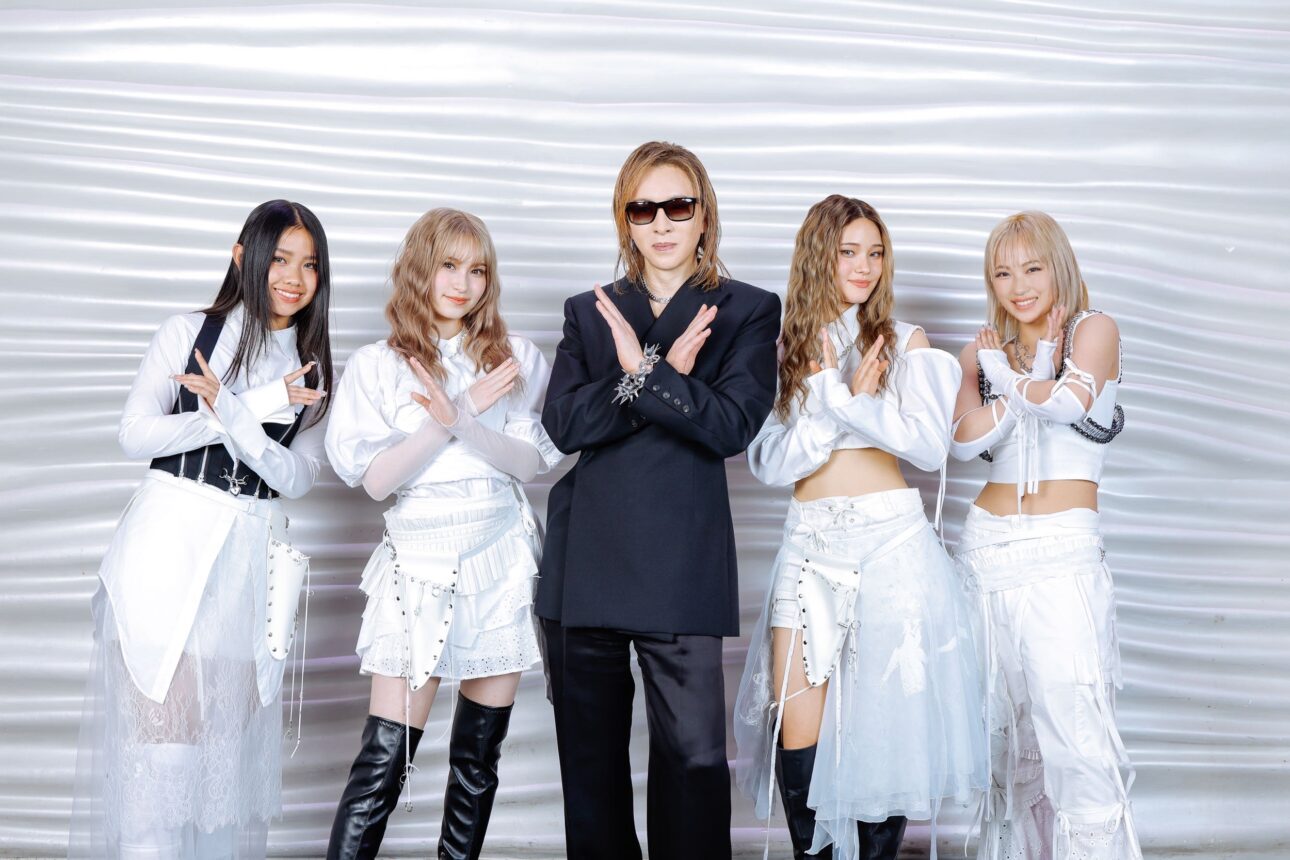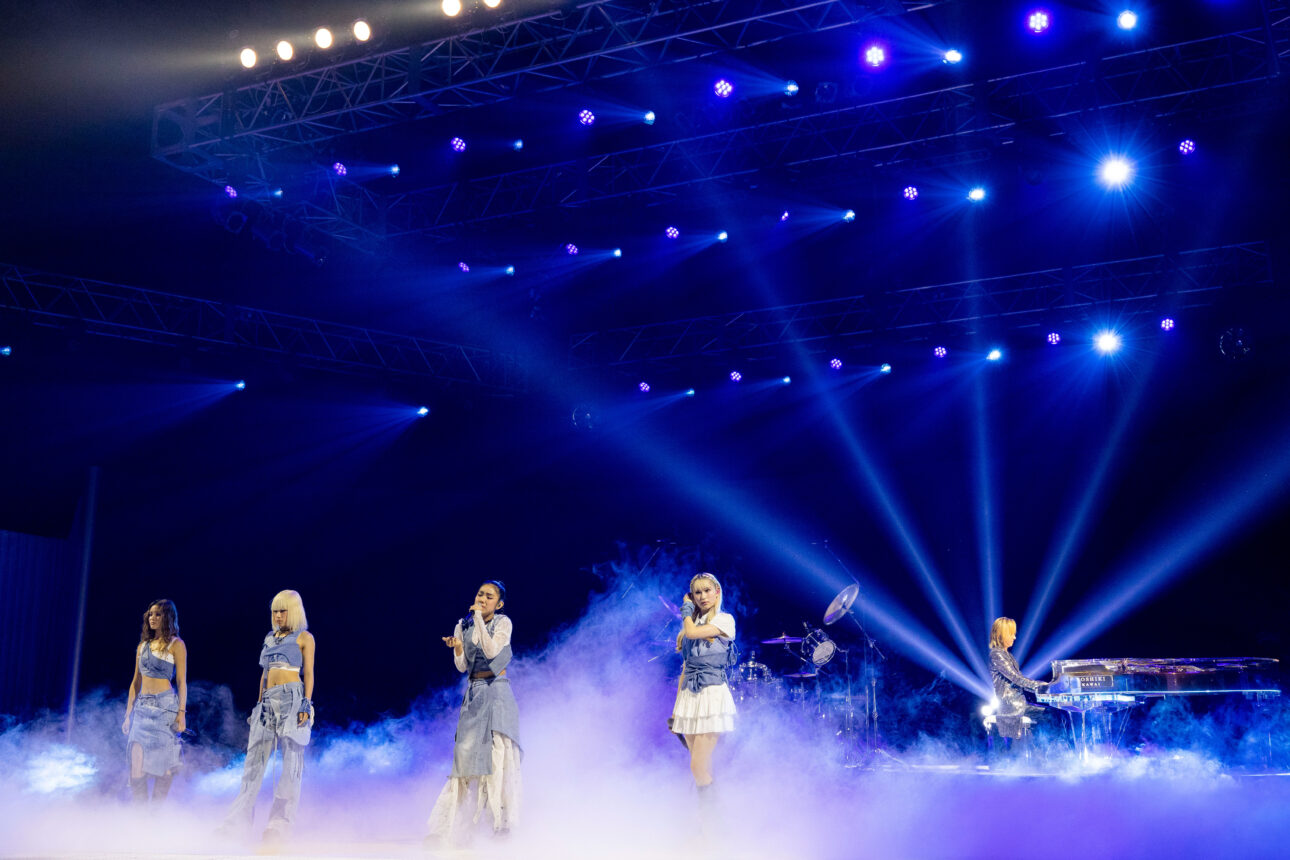If you’re planning to see Rebel Wilson’s new movie Bride Hard, you might notice a catchy new song you’ve never heard before.
That track, “Butterfly,” is the debut from J-pop four-octave girl group Bi-Ray — the latest stars-in-the-making from Japan, produced and formed by legendary composer, Yoshiki. The group formed after all four of them — Emi, Michelle, Cocomi and Hinata — performed individually on Kasho-Oh (“Singing King” in Japanese), a popular TV show on which Yoshiki participated as a judge for multiple years and are unquestionably some of the most talented teenagers on the planet.
More from Spin:
- Qobuz Shares Streamable Monthly Top Albums Chart for May
- The 10 Most Important Moments on Wu-Tang Clan’s Final Chamber Tour
- Good Charlotte’s Billy Martin on His Two Loves: PRS Guitars and the Oklahoma City Thunder
Check out the video for the brand new song from Bi-Ray along with exclusive interviews with Bi-Ray and Yoshiki below.
SPIN: How do you feel about the new song and video for “Butterfly”?
Emi: It’s a song about overcoming adversity and having everyone support you while overcoming adversity, and it gives you a lot of energy and power. With regard to the music video, it was a great experience because they were able to shoot the music video in Los Angeles with famous Hollywood actresses and a local production team. We were very honored to have been able to experience that. Everything is a new challenge for us, but I feel like we were able to come out with a great music video.
Michelle: We were all very surprised. It was our first music video shoot, so we didn’t think that such important people in Hollywood were going to be in the music video. That just made us want to perform better and sing better for both the people that are going to watch the music video as well as the actors, because it’s really something we didn’t think would happen.
Yoshiki: When I was working on this project, I luckily came across the film called Bride Hard, so I was like “What if I can combine both of those?” It’s going to be their debut single, so I wanted to add something special to it. Even though they are very young, they’ve been participating in TV shows for several years, so I wanted them to have a song about how they can finally fly, which is why I wrote “Butterfly.” It’s also a little bit more of a girl power thing, which fits the film’s theme.

Is there anything you want people to take away from listening to “Butterfly”?
Michelle: When they listen to “Butterfly,” we want them to really read the lyrics carefully and think about how it would connect to their past experiences. The lyrics are really something that will hit someone’s heart, and I know it hit my heart the first time I heard it. I would really like them to focus on the lyrics — because they’re something that’s very special about the song — and our singing as well.
Hinata: Our singing is so different, because we all have such different voices.
Yoshiki: I think the song shows that the girls are artists who are trying to break through their boundaries. They are super young, but at the same time, they’ve been going through years of practicing and overcoming obstacles. This song is their moment. Finally, they are ready.
What was the collaboration with Yoshiki like?
Cocomi: Overall, it’s an unbelievable experience to be able to work with Yoshiki. I’m very happy to be able to work with him. As we work with him, we see how he deals with everything around him and how he does his work, so it’s a great learning experience for us as well.
Yoshiki: I live in Los Angeles and they’re in Japan, so we did a lot of remote recording, which is very different. It was also interesting because they are so energetic. They don’t know their limits, which is amazing, but I have to be careful to not hurt their vocal cords. We have to watch how many takes they sing and things like that, but every time we record, I feel a lot of energy from them.
What are some of your goals for Bi-Ray?
Hinata: As a group, we would like to be able to become an artist that can go on stages around the world and eventually do a world tour. One of our specific goals is to be able to perform at Coachella. Also, Michelle already speaks English, but the rest of us are studying English and working really hard at it.
Yoshiki: I’ve seen so many singers over the past few decades, and they’re amazing singers. All four of them have a different tone of voice — and everybody is good enough to be a standalone solo singer — but if we put all four singers together in one group, there’s unlimited possibilities. I do a lot of rock and pop music, but also classical music where I work with an orchestra. This feels like I have the violin, the viola, the cello, and other woodwinds or something like that all in an amazing vocal group.

What was your experience on TV like?
Emi: We were already friends before we came together as a group through the TV show, so when we found out that we were coming together as a group, it was very exciting. I really looked forward to what I could do with this group, because we all have come from different backgrounds and can each convey different messages to our audience. Then when we did our first TV appearance, it was a lot of pressure, but at the same time, it became a very important day for the group.
Yoshiki: The audition TV show I met them through is kind of like The Voice. There’s so much talent on that show, and I was a judge on it for three years straight. Some people would sign to labels from it, but some people would just get nothing. I started thinking “Why don’t we put all those amazing singers together?” So I decided to create this group.
How would you explain J-pop as a genre to those who aren’t aware of it?
Cocomi: I don’t think the world is very aware of J-pop as a genre, but it’s very different from K-pop. In K-pop, dancing is the main thing and is as important as the song. In J-pop, the song changes depending on the tempo and is all about expressing emotions through music.
Yoshiki: I love what’s going on in this music scene right now. A few decades ago, people from Asia had a very small presence on a global level. It was saturated by Western artists, which I really respect as well. But in the past decade or so, some paradigm shifts happened, which means that some Asian artists are becoming much more noticeable. Japan is an interesting place, because we’re influenced by culture from the West as well as the East. People may be pretty familiar with Japanese animation — which has taken off throughout the world — but in terms of music, there hasn’t been a straightforward huge artist from Japan. Japan has a very interesting culture, because it has such a long history, but it’s also so focused on crazy new movements. I think a lot of J-pop and J-rock groups have a chance to do big things, and I hope more Japanese artists come to the West to explore their possibilities, like K-pop’s been doing.
To see our running list of the top 100 greatest rock stars of all time, click here.



